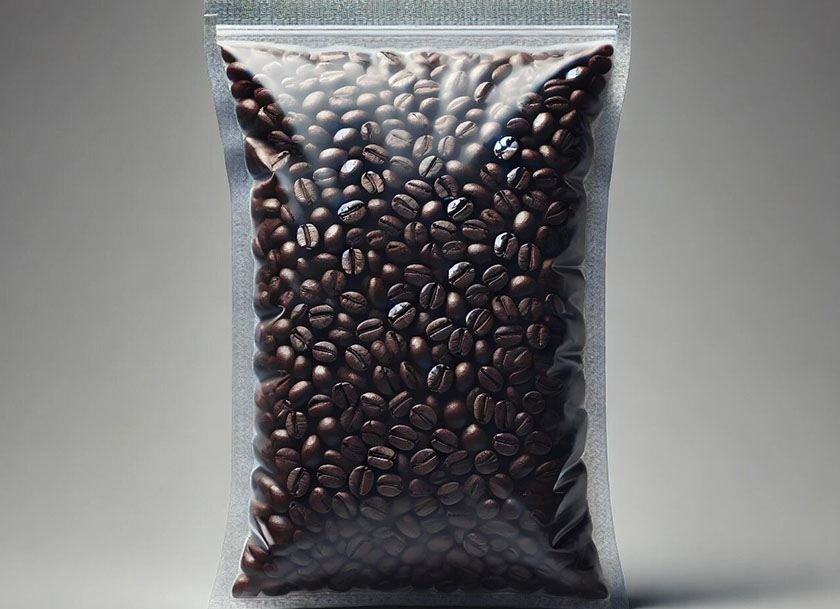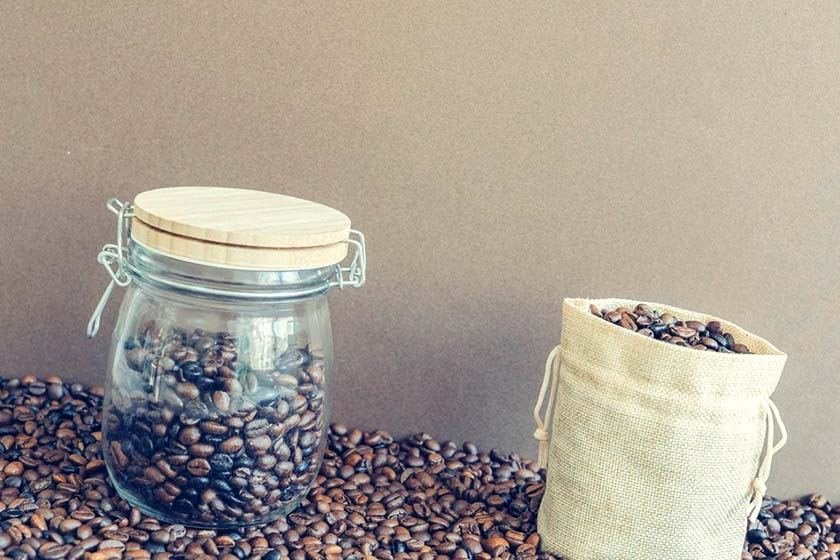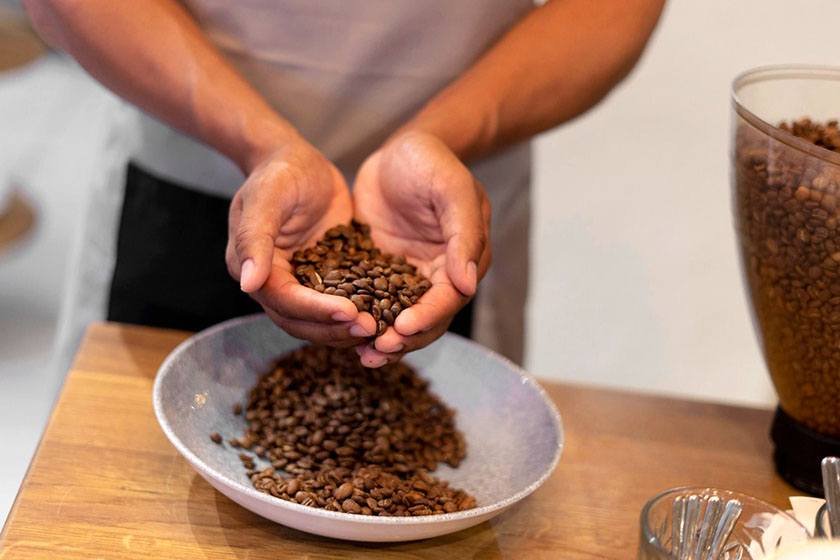Properly storing coffee beans is essential for preserving their rich flavor and aroma. Whether you are a casual drinker or a dedicated coffee enthusiast, understanding the best way to store coffee beans can significantly enhance the freshness of your daily brew.
This article will explore the factors that affect coffee freshness, ideal storage methods, and tips tailored for different environments. It will also address how long you can keep your beans and how to identify signs of spoilage.
By applying this knowledge, you can elevate your coffee experience. Continue reading for more insights.
Why Is Storing Coffee Beans Important?
Storing coffee beans properly is essential for maintaining their freshness, flavor, and overall quality, as these factors directly impact the coffee culture and enjoyment for both enthusiasts and casual drinkers.
When coffee beans are exposed to air, moisture, and light, they start to lose their vital characteristics, resulting in flavor degradation and a decline in aroma. Recognizing the importance of proper storage can greatly enhance your brewing experience and ensure that you maximize the value of your coffee beans over time.
What Factors Affect the Freshness of Coffee Beans?
Several factors can significantly impact the freshness of coffee beans, primarily through their exposure to air, light, moisture, and temperature. Each of these elements plays a crucial role in the chemical reactions occurring within the beans, potentially leading to accelerated aging and flavor degradation.
By understanding how these factors influence the freshness timeline of your coffee, you can implement effective storage solutions that preserve the unique flavor notes and aroma of various coffee varieties.
1. Exposure to Air
 Exposure to air is one of the most detrimental factors affecting coffee beans, as it leads to oxygen exposure and accelerated oxidation, which ultimately results in flavor degradation. When you store coffee beans in non-airtight containers, the air interacts with the oils within the beans, causing them to lose their unique flavor profile and aroma.
Exposure to air is one of the most detrimental factors affecting coffee beans, as it leads to oxygen exposure and accelerated oxidation, which ultimately results in flavor degradation. When you store coffee beans in non-airtight containers, the air interacts with the oils within the beans, causing them to lose their unique flavor profile and aroma.
The best way to store coffee beans is by using airtight containers to preserve their freshness and maintain their distinct characteristics for a longer period. Implementing proper storage methods, such as using an airtight container, can significantly enhance the longevity of your coffee beans.
This process of coffee oxidation begins immediately after roasting, and without proper protection, the rich characteristics of the beans start to fade. Over time, oxidation compounds can develop, leading to stale flavors that are far from the original roast’s intended taste. Fresh coffee undergoes a phenomenon known as degassing, where carbon dioxide trapped during roasting is released over time.
To preserve the vibrant notes that coffee enthusiasts appreciate, securing your beans in an airtight container will help to slow down both oxidation and degassing, ensuring a brew that remains fresh and true to its origin.
2. Exposure to Light
Light exposure is a critical factor that can compromise the freshness of coffee beans. Since these beans are light-sensitive, direct sunlight or harsh artificial lighting can lead to flavor degradation.
To maintain the quality of your coffee beans, it is advisable to store them in a dark environment, such as a pantry or dark cupboard. Proper coffee storage solutions should prioritize minimizing light exposure to ensure maximum flavor retention.
By keeping these beans away from bright environments, you can prolong their rich aroma and nuanced taste. When light penetrates packaging or directly hits the beans, it triggers chemical reactions that may result in a stale and lifeless brew.
For those who genuinely appreciate a quality coffee experience, utilizing opaque or vacuum-sealed containers not only protects against light but also helps maintain optimal moisture levels. Taking a proactive approach to storage is the best way to store coffee beans and ensure that the vibrant sensory characteristics that define excellent coffee are safeguarded.
3. Exposure to Moisture
Moisture represents a significant threat to the freshness of coffee beans, as high humidity levels can accelerate flavor degradation and promote mold growth. It is essential to implement effective humidity control measures when storing coffee, ensuring that the beans are kept in a cool, dry environment to maintain their flavor and aroma.
By adhering to essential coffee storage guidelines, you can significantly prolong the shelf life of your beans and enhance your overall coffee enjoyment.
Controlling moisture levels is crucial for preserving the integrity of your coffee. Utilizing airtight containers reduces exposure to humidity, while storing beans in a dark, temperature-stable location prevents unwanted moisture fluctuations.
Vacuum-sealing can also be an excellent method to protect coffee from ambient humidity, allowing you to savor the full spectrum of flavors without the risk of spoilage.
Ultimately, understanding the impact of moisture not only ensures a richer tasting experience but also reinforces the importance of proper storage techniques to avoid potential deterioration.
4. Exposure to Heat
Heat exposure can significantly affect the quality of coffee beans, as elevated temperatures accelerate the aging process and result in a loss of flavor and aroma. Implementing temperature control measures and storing beans in insulated containers can help mitigate these effects, ensuring that your coffee remains fresh for a longer period.
To ensure the best way to store coffee beans, avoid placing them in kitchen or pantry areas prone to temperature fluctuations, as this helps maintain optimal conditions for freshness.
Maintaining a consistent environment for coffee storage is essential, as even brief exposure to high heat can cause irreversible changes in taste profiles. Opting for containers that provide insulation creates a barrier against external thermal influences, keeping the beans at a stable temperature. Consider using airtight jars or specialized coffee canisters designed to minimize heat absorption.
By prioritizing temperature control, you not only enhance the longevity of your beans but also maximize their potential to deliver the fresh, rich flavor you expect with every cup.
What Is the Ideal Way to Store Coffee Beans?
 To maintain the freshness and quality of your coffee beans, it is essential to understand the optimal storage methods. Utilizing airtight containers and keeping the beans in a cool, dark environment are key practices.
To maintain the freshness and quality of your coffee beans, it is essential to understand the optimal storage methods. Utilizing airtight containers and keeping the beans in a cool, dark environment are key practices.
By following these guidelines, you can ensure that your coffee retains its flavor and aroma for an extended period, allowing you to fully appreciate various coffee varieties and blends. Implementing effective coffee storage solutions is crucial for both casual drinkers and serious coffee enthusiasts.
1. Use an Airtight Container
Using an airtight container is one of the most effective methods for preserving the freshness of coffee beans, as it minimizes oxygen exposure and prevents flavor degradation.
You have a variety of airtight container options available, from glass jars with silicone seals to specialized coffee canisters designed with one-way valves that release gases while keeping air out.
Vacuum sealing is another popular technique that can significantly enhance the longevity of your coffee, allowing you to store beans for months without compromising their vibrant flavor.
For those who value convenience, the best way to store coffee beans is in resealable coffee bags that often feature a foil barrier to protect the beans from light and moisture, both of which can negatively affect taste.
By implementing these various storage methods, you can truly savor the nuances of your favorite brews, ensuring each cup is as delightful as the last.
2. Keep Away from Light
Keeping coffee beans away from light is essential for maintaining their freshness, as exposure can lead to flavor degradation and loss of aroma. Storing beans in a dark cupboard or using opaque containers can significantly enhance flavor retention, ensuring that your coffee remains delicious. Implementing straightforward coffee storage tips can notably extend the longevity of your beans and the quality of your brew.
To further protect these valuable beans from the damaging effects of light, consider utilizing specialized storage solutions, such as vacuum-sealed bags or dark glass jars. These methods not only shield the coffee from ultraviolet rays but also help to regulate airflow, preventing oxidation. The significance of a cool environment cannot be overstated – heat can intensify flavor loss.
By prioritizing dark storage environments, you are taking proactive measures to safeguard the rich, intricate flavors that well-roasted coffee offers, ensuring that each cup remains as satisfying as the last.
3. Store in a Cool, Dry Place
Storing coffee beans in a cool, dry place is essential for minimizing the effects of heat and moisture, which are two critical factors that impact freshness. Ideal storage solutions include pantries or cabinets that maintain consistent temperature control and humidity levels, both vital for preserving the beans’ flavor profile.
Implementing moisture control measures in your storage area will help ensure that your coffee retains its quality for longer periods. Maintaining a stable environment not only prolongs the life of your beans but also enhances your overall coffee experience.
By selecting a location away from direct sunlight and heat sources, you can keep the aromatic compounds within the coffee intact, allowing you to fully enjoy their rich flavors.
Humidity is equally crucial – excess moisture can lead to mold growth or stale beans. For those who are serious about their brews, the best way to store coffee beans is by investing in an airtight container, which offers additional protection against temperature fluctuations and humidity, ensuring that each cup you brew remains as fresh and delightful as possible.
How Long Can Coffee Beans Be Stored?
The shelf life of coffee beans varies significantly between whole beans and ground beans, with whole beans generally exhibiting a longer duration due to their intact structure.
Whole roasted coffee beans can typically remain fresh for up to two weeks to a month after the roast date, while ground coffee tends to lose its freshness within a week.
Understanding these differences is essential for coffee enthusiasts who seek to maximize both the shelf life and quality of their beans.
1. Whole Beans vs Ground Beans
Whole beans typically maintain their freshness for a longer duration compared to ground beans, making them the preferred choice for preserving flavor and aroma. When stored correctly, the freshness of whole beans can last up to a month, while ground beans often lose their essential flavors within just a week.
For true coffee enthusiasts, understanding these differences in the best way to store coffee beans can significantly enhance the overall brewing experience and increase enjoyment.
When whole beans remain intact, they benefit from their natural protective casing, which helps shield them from exposure to air and moisture. This preservation allows the rich and complex flavor profiles to develop fully over time.
Conversely, the grinding process breaks this barrier, increasing the surface area that interacts with oxygen and leading to rapid flavor decay. A freshly ground batch may be vibrant at first but can turn stale quickly, often resulting in a less satisfying cup.
Therefore, for those who value the integrity of their coffee, the decision to grind only before brewing is essential for enjoying the full spectrum of flavors each time.
2. Roasted Beans vs Unroasted Beans
Roasted beans typically have a shorter shelf life compared to unroasted beans, as the roasting process accelerates aging and flavor development. While unroasted beans can be stored for an extended period without significant loss of quality, it is advisable to consume roasted beans within a few weeks to fully experience their unique flavor notes and aroma.
Understanding these storage dynamics is essential for anyone who wishes to savor high-quality coffee. The primary difference lies in how these beans interact with their environment after roasting.
Once the roasting process is complete, the volatile compounds that contribute significantly to the coffee’s rich flavor and fragrant aroma begin to dissipate, making freshness crucial.
Conversely, unroasted beans, often referred to as green coffee, can maintain their quality for years when stored properly in a cool, dark place. This longevity allows for a controlled aging process, enabling enthusiasts to experiment with optimal roasting times that can enhance flavor profiles, ranging from floral to chocolatey notes.
A thorough understanding of these storage practices give the power tos coffee lovers to appreciate the journey from farm to cup more effectively.
What Are the Signs of Spoiled Coffee Beans?
Identifying the signs of spoiled coffee beans is essential for maintaining the quality and flavor of your brews, as a loss of freshness can lead to a less than satisfactory coffee experience. The best way to store coffee beans plays a crucial role in preserving their freshness and preventing them from going bad too quickly.
Common indicators of spoiled coffee include a rancid smell, dull appearance, and lack of aroma, all of which suggest significant flavor degradation. By recognizing these signs early, you can take proactive measures to ensure that your coffee remains fresh and enjoyable.
Other key factors to evaluate are the beans’ texture and color – stale beans often feel excessively dry or oily and may display uneven coloration, indicating they are past their prime. Additionally, if ground coffee fails to produce a vibrant aroma when brewed, it may suggest that the beans have lost their vitality, resulting in a flat flavor profile.
Observing the roasting date can also provide valuable insights, as older beans naturally lose their freshness over time. Understanding these indicators give the power tos coffee enthusiasts to make informed choices, ensuring each cup is as delightful as intended.
Tips for Storing Coffee Beans in Different Environments
 When storing coffee beans, it is essential to recognize that different environments can significantly affect storage methods and protocols. Tailored approaches are required based on climate conditions.
When storing coffee beans, it is essential to recognize that different environments can significantly affect storage methods and protocols. Tailored approaches are required based on climate conditions.
In hot and humid climates, for instance, moisture control is vital, whereas in colder climates, prioritizing temperature management is crucial. Understanding these nuances is key to maintaining the freshness of coffee, regardless of your location.
1. Hot and Humid Climate
In a hot and humid climate, moisture control is crucial for preserving the freshness and flavor of coffee beans. Elevated humidity levels can lead to rapid flavor degradation, making it essential for you to use airtight containers and store your beans in a cool, dark place. Implementing effective coffee storage solutions can significantly reduce the risks associated with moisture, helping you retain the rich flavor and aroma of your beans.
To achieve optimal moisture control, consider using vacuum-sealed containers or glass jars with rubber seals, specifically designed to keep humidity out while maintaining internal airflow. For an added layer of protection, incorporating desiccant packs can help absorb any excess moisture that may enter the container, making it the best way to store coffee beans and preserve their freshness.
Investing in a dedicated coffee fridge can create an ideal environment, maintaining a consistent temperature to prevent fluctuations that could impact flavor preservation. By employing these techniques and products, you will ensure that your coffee remains vibrant and delicious, even in challenging climates.
2. Cold Climate
In a cold climate, maintaining proper temperature control when storing coffee beans is essential, as extreme fluctuations can adversely affect their quality. Utilizing insulated containers can help stabilize temperature and minimize the risk of moisture exposure, which can degrade freshness.
By ensuring that your coffee beans are kept in an optimal environment, you can slow down the aging process and preserve their flavor profile. Selecting a location away from direct sunlight and heat sources is crucial, as this can further reduce temperature variations.
For those who value their morning brew, investing in vacuum-sealed bags or airtight jars can significantly enhance the retention of peak freshness.
Regularly checking the storage conditions and ensuring that the containers are properly sealed also contributes greatly to extending the lifespan of the beans. By following these best practices, you can enjoy a consistently high-quality cup of coffee, rich in flavor and aroma, regardless of the chill outside.
3. High Altitude
Storing coffee beans at high altitudes presents unique challenges, particularly regarding changes in oxygen levels and humidity, which can significantly affect the freshness of your coffee.
It is essential to employ appropriate storage methods that account for these variations to ensure that your coffee beans maintain their flavor notes and aroma. By considering these factors, you can greatly enhance your brewing experience.
Altitude can lead to fluctuating temperatures that may cause beans to release their oils prematurely, negatively impacting their taste profile. To combat this, the best way to store coffee beans is by utilizing airtight containers, which prevent exposure to air that can oxidize the beans and diminish their complexity.
Additionally, ensuring that the storage location is cool and dark will help preserve essential oils and retain the enticing notes of citrus or chocolate often found in high-quality beans.
Paying attention to these specific considerations will not only prolong the life of your coffee but also elevate every cup, allowing the richness of the beans to truly shine.
How to Store Coffee Beans for Maximum Freshness?
To store coffee beans for maximum freshness, it is crucial to adopt best practices and effective storage solutions that prioritize flavor preservation.
Implementing strategies such as using airtight containers, keeping the beans in a cool, dry environment, and minimizing exposure to light and moisture can significantly enhance the longevity of your coffee’s quality.
By adhering to these guidelines, you can ensure that your coffee remains fresh and enjoyable for an extended period. Scroll to the FAQ section at the end for additional insights.

